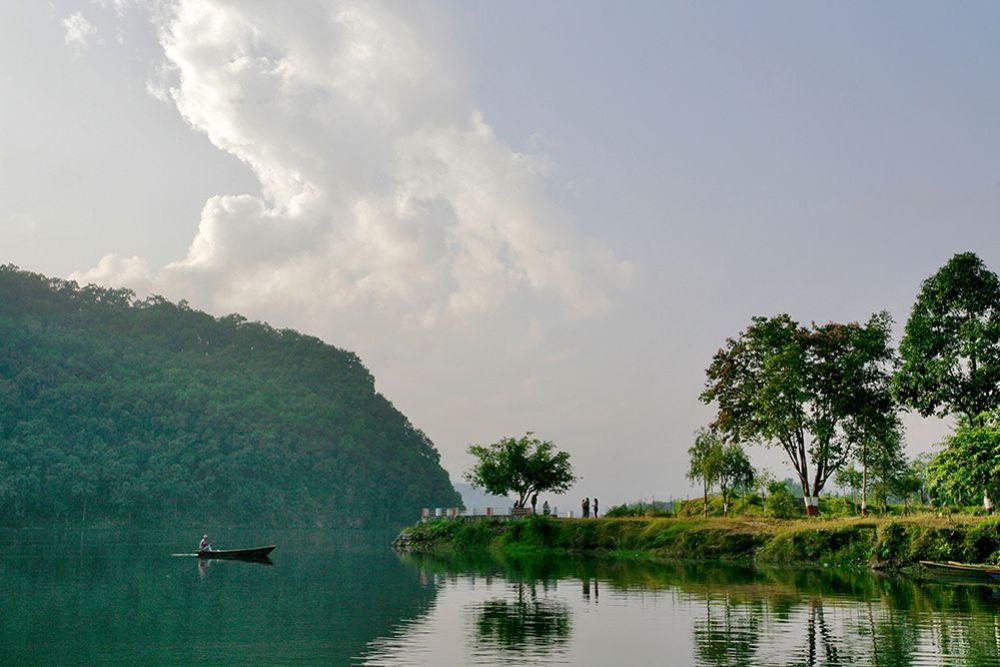

Pokhara, often revered as the tourism capital of Nepal, is a city that has long attracted visitors with its stunning natural beauty. Nestled in the heart of the Himalayas, near the Annapurna Range, Pokhara is a favored destination for trekkers, adventure seekers, and those looking to enjoy the serenity of nature.
The history of tourism in Pokhara can be traced back to the mid-20th century when it started to gain popularity as a pit-stop for trekkers and mountaineers heading towards the Annapurna Circuit. However, it wasn't until the 1970s, with the end of Nepal's isolation from the rest of the world, that tourism really began to flourish. The establishment of the first airport in 1958 made the region more accessible, encouraging an influx of international tourists.
Basundhara Park, named after the Goddess Basundhara, is one of the many attractions in Pokhara that emerged amidst this growing tourism landscape. It is located near the famous Phewa Lake and provides a tranquil environment for both locals and visitors. The park is relatively new compared to the history of tourism in Pokhara, but it has become a popular spot for relaxation, picnics, and enjoying the views of the lake and the Annapurna range.
As tourism numbers grew, so did the development around Basundhara Park. The park has seen enhancements to cater to visitors, such as landscaped gardens, walking paths, and improved facilities. These developments have made the park an even more attractive destination for tourists seeking a quiet escape from the bustling city.
In recent years, tourism trends in Pokhara have diversified. Adventure tourism has surged with activities such as paragliding, zip-lining, and ultra-light flights offering breathtaking aerial views of the region. Meanwhile, wellness tourism is gaining ground, with yoga and meditation retreats leveraging Pokhara's serene environment.
The concept of sustainable tourism has also started to take root in Pokhara, with initiatives to protect the natural environment and local culture. Organizations and businesses are adopting eco-friendly practices, recognizing the importance of preserving the city's beauty for future generations. Basundhara Park supports these initiatives by being an emblem of green space conservation in the heart of Pokhara.
The global COVID-19 pandemic has had a significant impact on tourism worldwide, and Pokhara was no exception. However, as travel restrictions ease and health protocols improve, tourism in Pokhara, including visits to places like Basundhara Park, is expected to recover and potentially even emerge stronger, with a renewed focus on quality and sustainability.
The history of tourism in Pokhara is a testament to the city's enduring appeal as a travel destination. Basundhara Park is just one example of the region's ability to offer both adventure and tranquility. With its beautiful landscape, diverse opportunities, and commitment to sustainable practices, Pokhara is poised to remain a beloved destination for tourists from around the world.